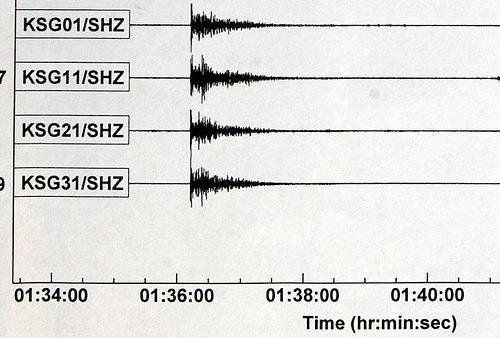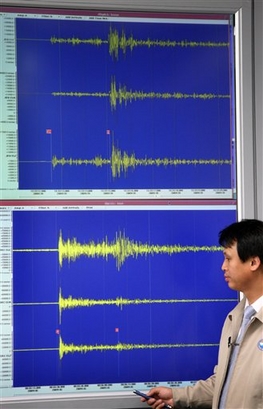All eyes on June 10
Update: Judy Han is also blogging on this. Meanwhile, the BBC Asia-Pacific section leads on the (admittedly horrendous) story of the two US journalists imprisoned by North Korea and its other Korea story is the ‘freezer baby’ case.
Looks like Wednesday this week could be a make or break day for democracy and social movements in South Korea. The Lee Myung-bak government has continued its ‘frog boiling’ strategy of gradually ratcheting up repression since the semi-defeat of last year’s candlelight protest movement. There have also been so many reactionary and repressive moves by this government that I’ve pretty much lost track. There have been many protests against this creeping authoritarianism but none of them have brought the necessary numbers onto the streets to even begin to worry MB. Or at least that was true until the suicide of Roh Moo-hyun which seems to have re-energised people’s anger against this government of the elite for the elite (for all the former presidents faults, his death appears to have thrown the barbarism of the current government into sharp relief).
And now the denial of right of assembly in Seoul that even saw people blocked from gathering in order to mourn Roh seems to have become a new focus for protest. Hopefully this Wednesday’s protest will be a massive show of strength, although there is little chance that the riot police will allow it to pass without violence. But there is no reason that the Korean people can’t be victorious this time around, as they were in the movement that climaxed on 10 June 1987.
If you are in Seoul try to join the protest. I unfortunately am not, but I’ll try to report on this as things happen.
For more on this see the statement put out by the Alliance of Scholars Concerned about Korea below:
(more…)




